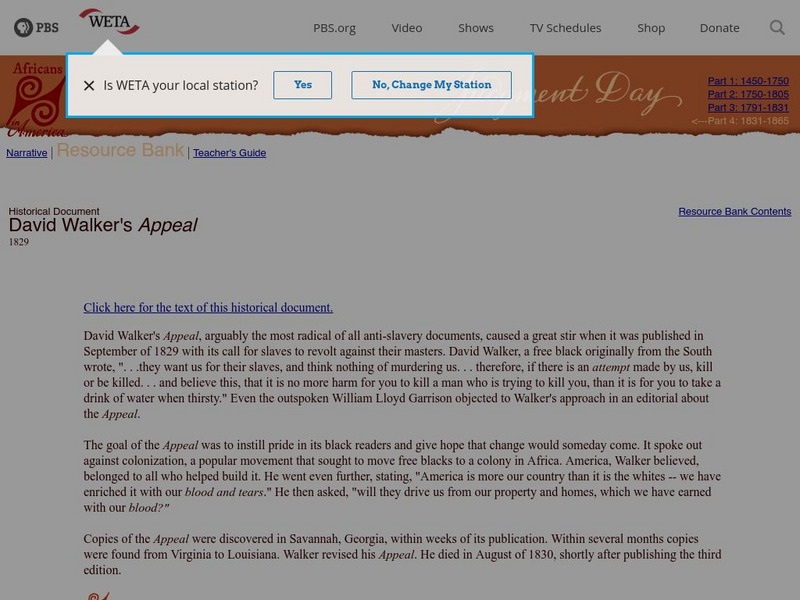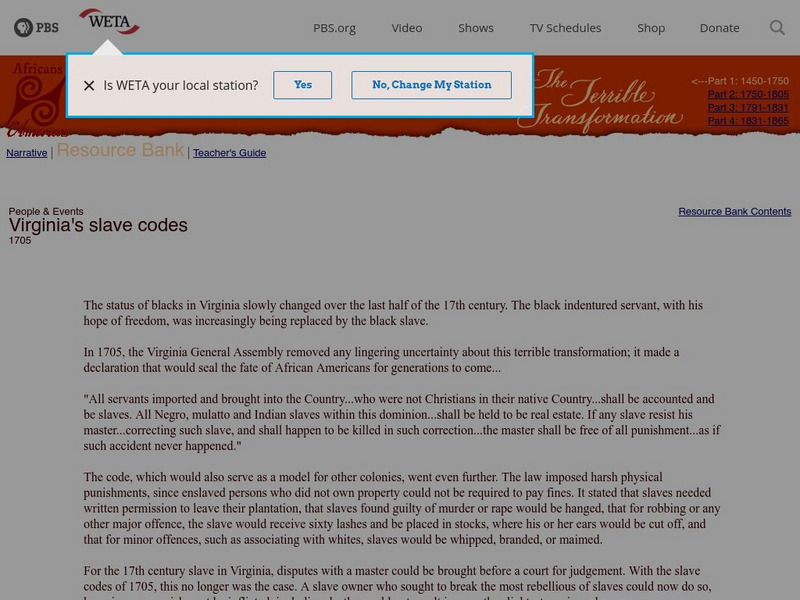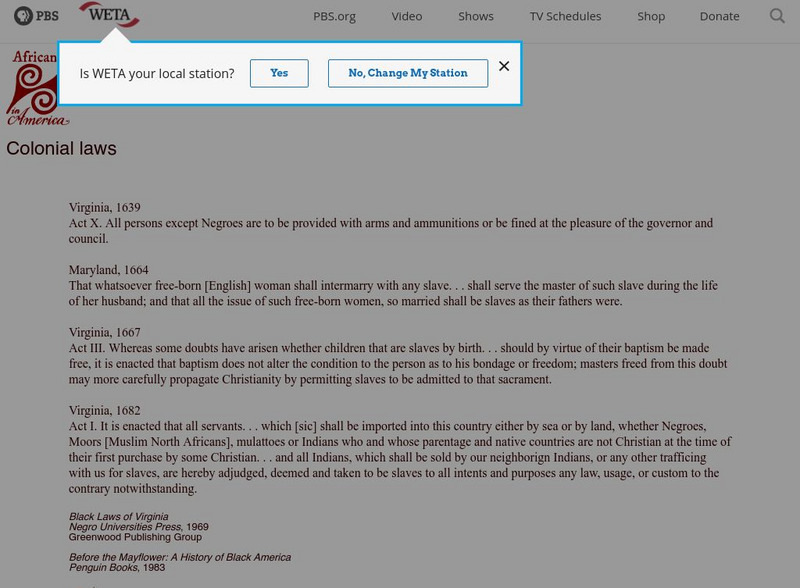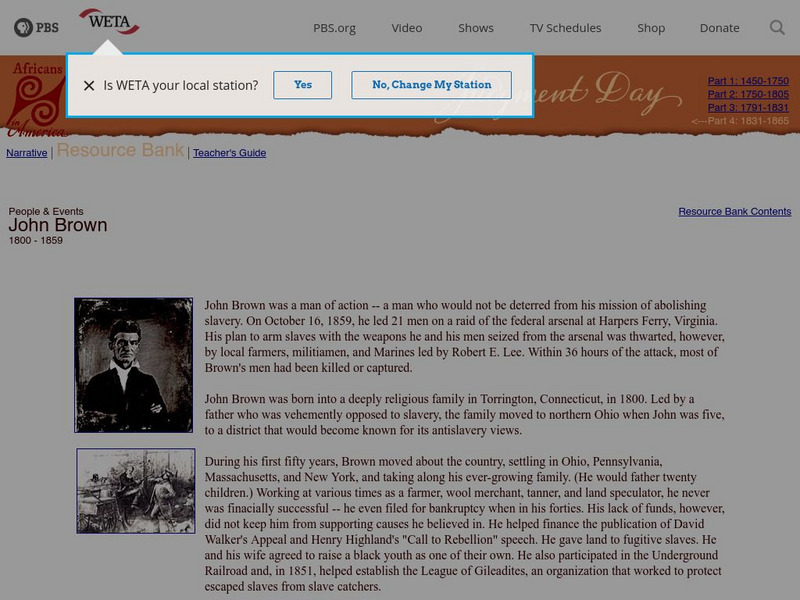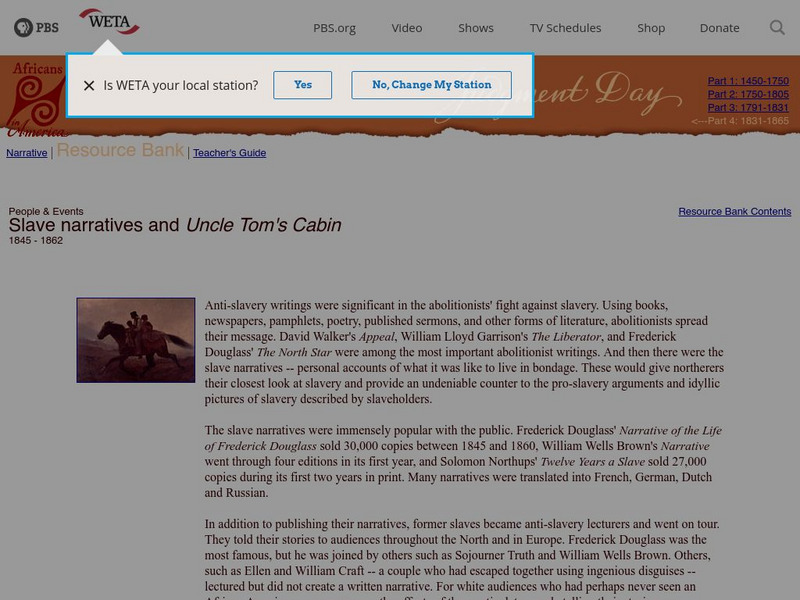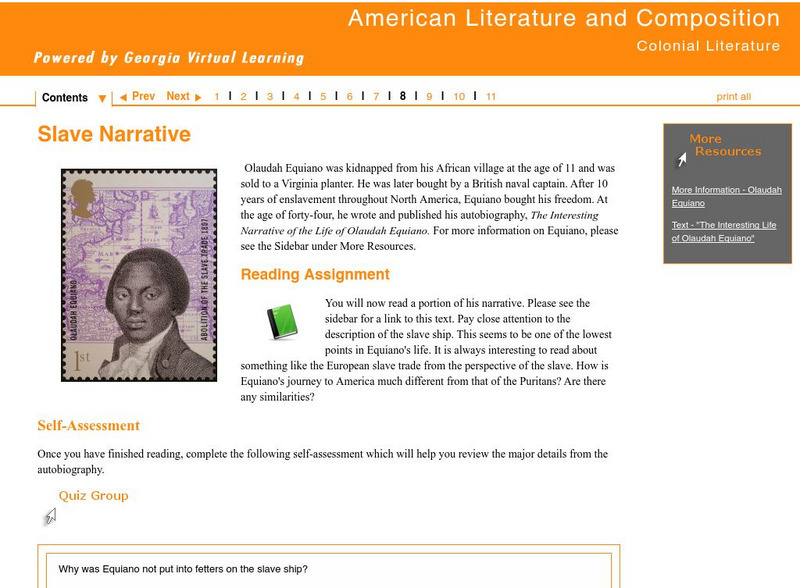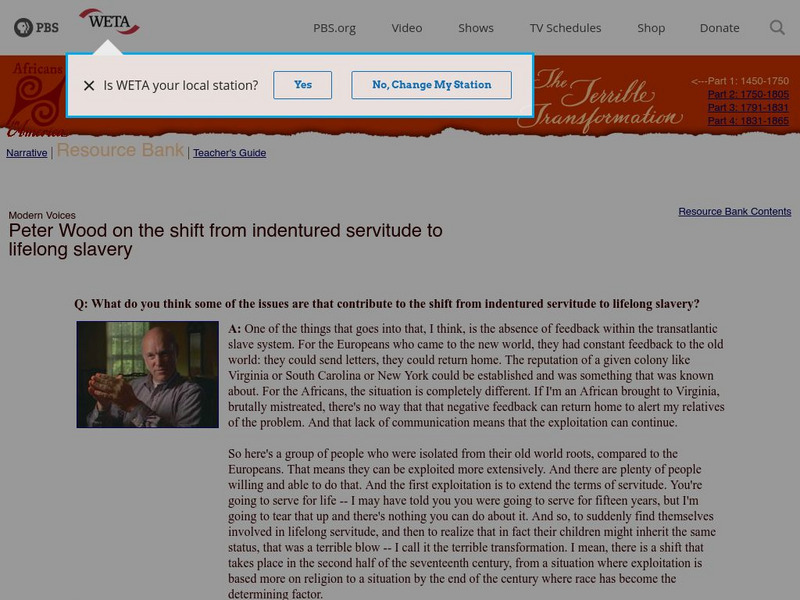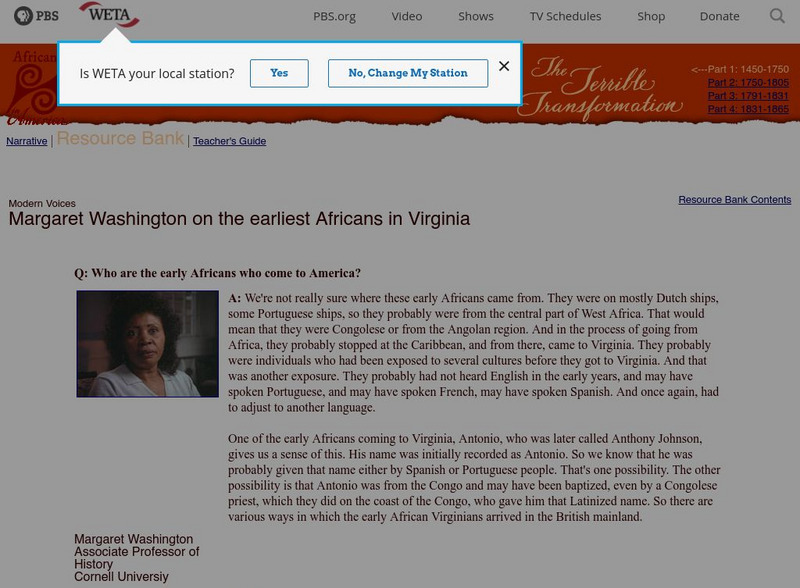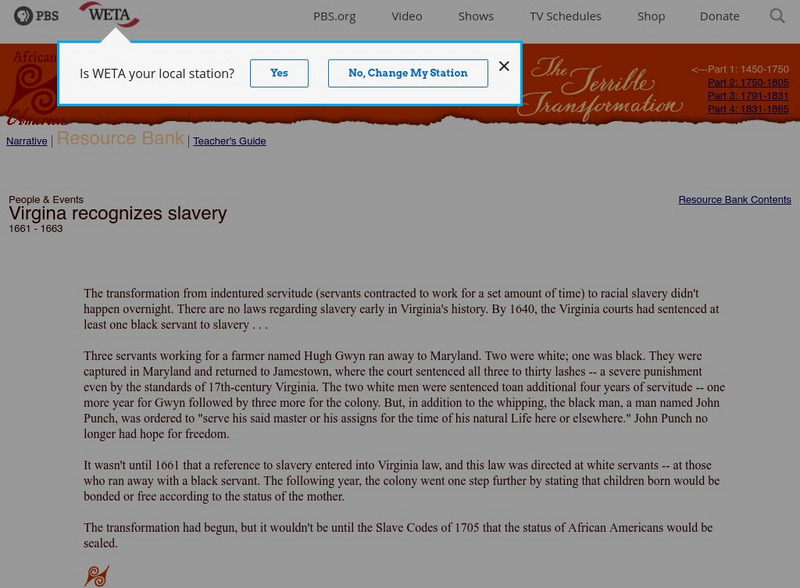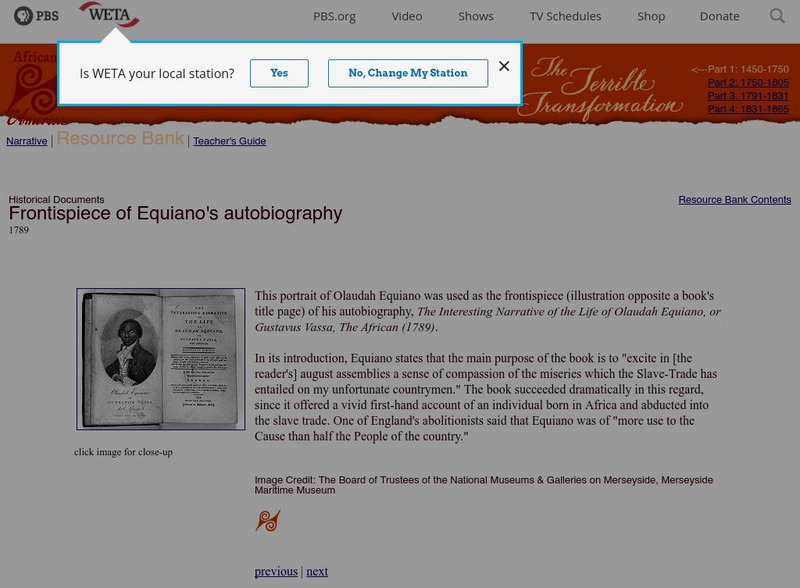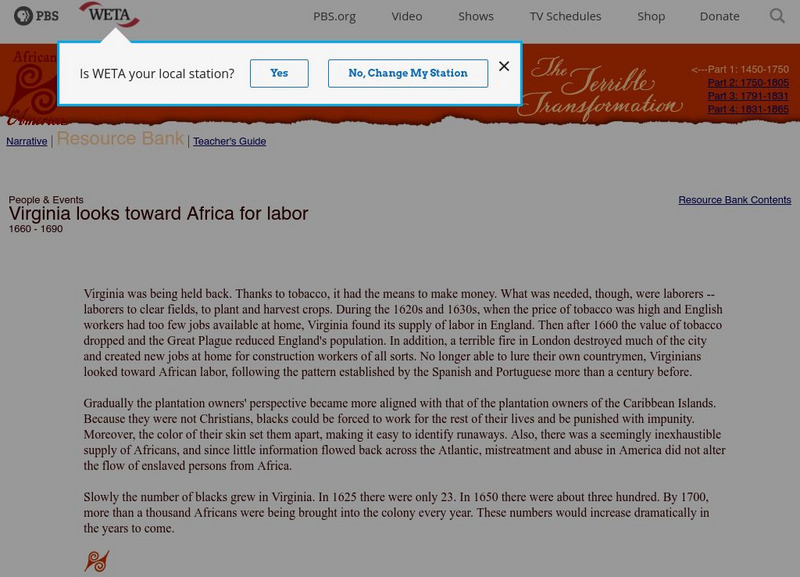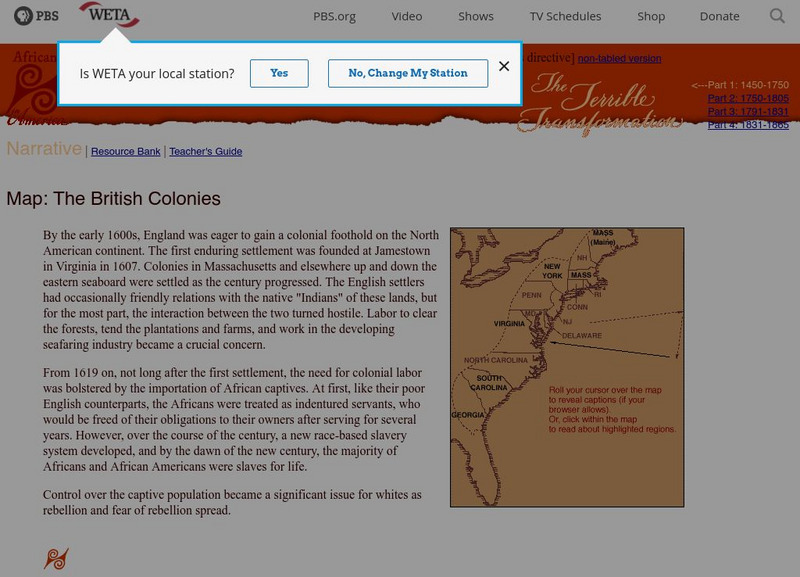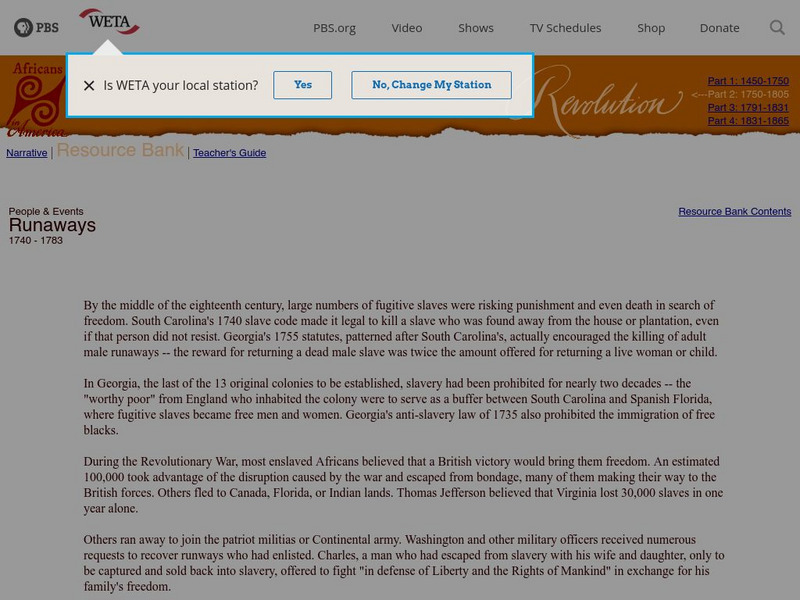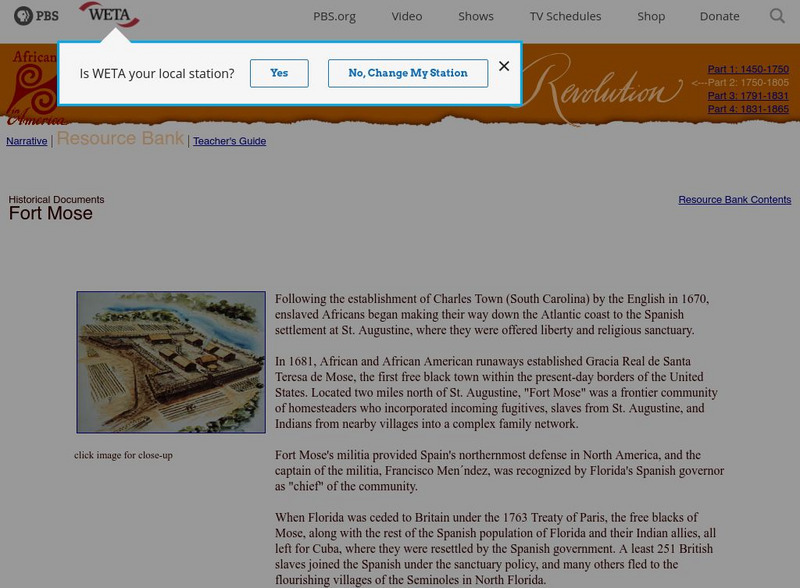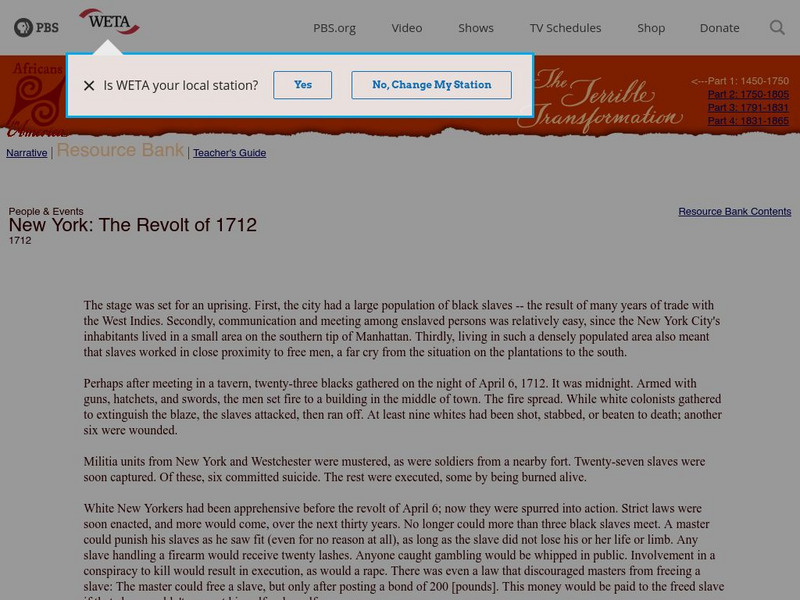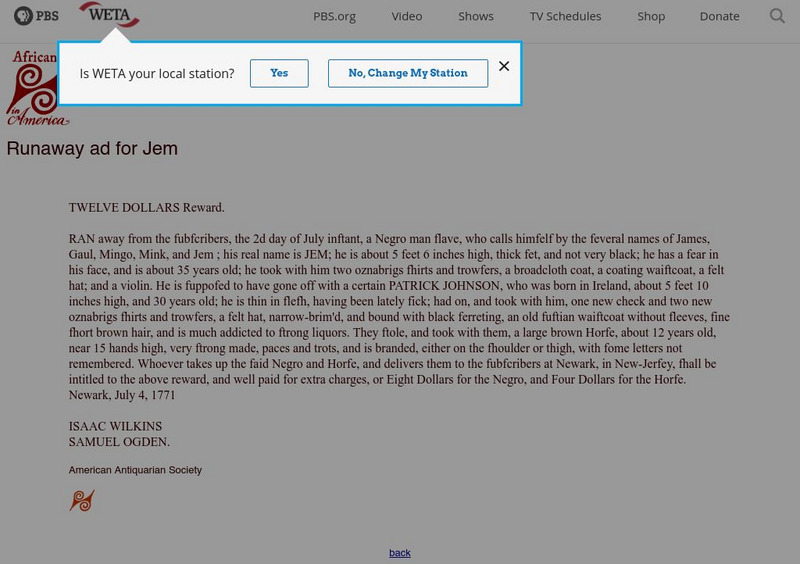PBS
Pbs's Africans in America: Equiano's Autobiography
Chapter two of "The Interesting Narrative of the Life of Olaudah Equiano," the autobiography of a man abducted from Africa and forced into slavery before later obtaining his freedom. This chapter details his capture and eventual journey...
PBS
Pbs: Cet: Africans in America: David Walker's Appeal
A description of the impact of David Walker's "Appeal" calling for slaves to revolt. Click on the link to read the original text. Click on Teachers Guide for teaching resources
PBS
Africans in America: Virginia's Slave Codes (1705)
This website describes contents of the Virginia Slave Codes of 1705 with excerpts from the orginal law.
PBS
Africans in America: Colonial Laws
Read some excerpts from original colonial laws concerning slaves.
PBS
Africans in America: John Brown
PBS Online provides a brief biography of John Brown and the way his life affected the abolitionist movement and contributed to the start of the U.S. Civil War.
PBS
Africans in America: American Colonization Society
Learn about the views of the American Colonization Society (ACS) and about their efforts to send free blacks to Liberia. This website briefly overviews how the ACS started and how their efforts lead to the emigration of thousands.
PBS
Pbs: Africans in America: Part 3: Eli Whitney's Cotton Gin
History of Eli Whitney and his cotton gin. Other links to sites with information on this topic.
PBS
Africans in America: Slave Narratives and Uncle Tom's Cabin
Slave narratives were an effective tool to spread information about what slavery was really like. Perhaps the most widely read literature about slavery happened to be written by a white woman, Harriet Beecher Stowe. Read about the impact...
PBS
Pbs: God in America: The Black Church
A good look at the role of the church and religion in the history of African Americans. Find out the church's importance in the abolition movement and the civil rights movement.
Georgia Department of Education
Ga Virtual Learning: Colonial Literature: Slave Narratives
This lesson focuses on Colonial period slave narratives including the autobiography, "The Interesting Narrative of the Life of Olaudah Equiano" by Olaudah Equiano. Links are provided to the narrative and the website Africans in America:...
Ohio State University
E History: Lynching in America
Ohio State University gives a general discussion of lynching with links to numerous newspaper accounts of an 1897 lynching in Urbana, Ohio.
National Humanities Center
National Humanities Center: Teacher Serve: Islam in America
This National Humanities Center essay about the growth and diversity of Islam in America suggests ways for teachers to introduce a basic understanding of the religion.
PBS
Pbs: Africans in America: Shift From Indentured Servitude to Lifelong Slavery
This discussion by Prof. Peter Wood of Duke University explores what may have allowed the shift from indentured servitude to lifelong slavery for Africans and their children. Click on Teacher's Guide for teacher resources.
PBS
Africans in America: Margaret Washington on the Earliest Africans in Va.
In a brief answer, Margaret Washington, Assoc. Professor of History at Cornell University, discusses where the first Africans to colonial Virginia were from, who they were, and what it may have been like for them.
PBS
Africans in America: Virginia Recognizes Slavery
Here is a general description of the gradual change from using indentured servants to recognizing Africans as slaves and the laws reflecting this change.
PBS
Africans in America: Frontispiece of Equiano's Autobiography
At this website, see a photo of the frontipiece from Olaudah Equiano's autobiography, "The Interesting Narrative of the Life of Olaudah Equiano, or Gustavus Vassa, the African." This book was a best seller.
PBS
Africans in America: Virginia Looks Toward Africa for Labor
This website explains why Virginia needed laborers, why it led to the use of African labor and how it was justified by Christians. Hyperlinks to related topics on the site.
PBS
Africans in America: Map of the British Colonies
Map of British Colonies and information from PBS on slavery from about 1600 to 1750. Some timelining of African American's lives in the New World.
PBS
Africans in America: Runaways 1740 1783
This website gives a rough idea of how many slaves were present in the South and what happened to many who ran away.
PBS
Africans in America: Fort Mose
This website from PBS describes how Fort Mose was established by runaway slaves in Spanish Florida. It also explains what happened to the inhabitants after Spain lost control of Florida.
PBS
Africans in America: New York: The Revolt of 1712
Description of revolt in New York City which led to stricter laws for the slaves.
PBS
Africans in America: Runaway Slave Ad From Colonial New Jersey
Here from PBS is the original text of a runaway slave ad for a slave named Jem. His owner in Newark, New Jersey describes him and offers a reward.
PBS
Africans in America: Witchhunt in New York: The 1741 Rebellion
Description of the revolt in New York soon after the Stono Rebellion which caused many slaves to die.
PBS
Pbs: African American World History
Featuring an excerpt from a memoir written by Ruby Bridges telling of her experience as the first African American child to attend an all white elementary school in New Orleans in the year 1960.



